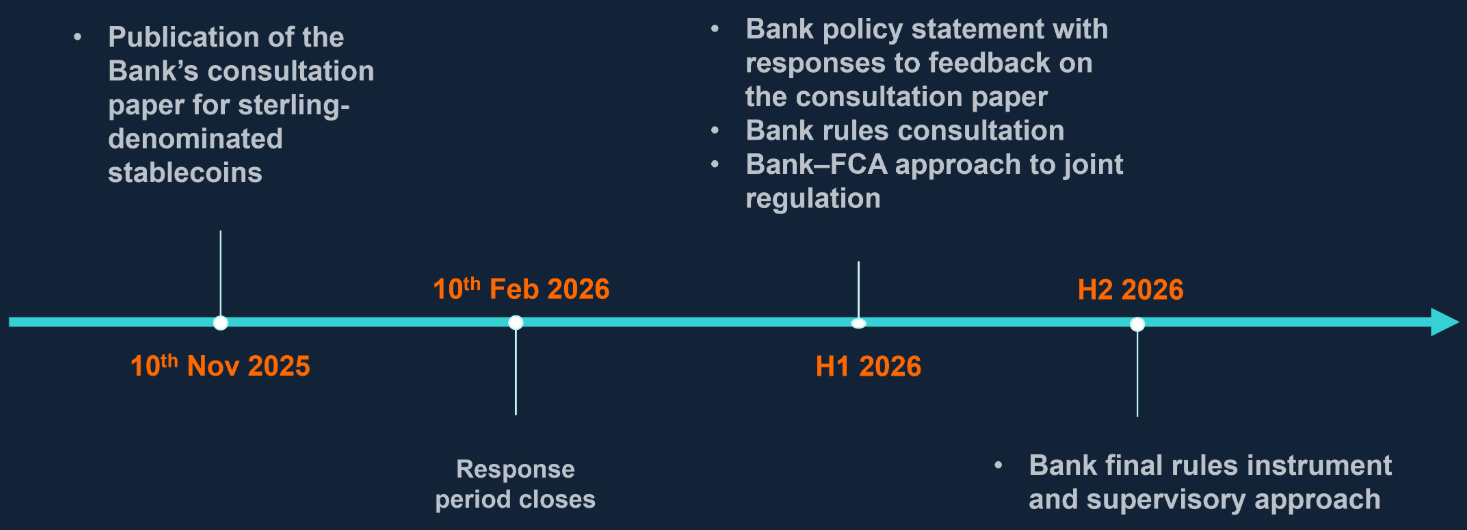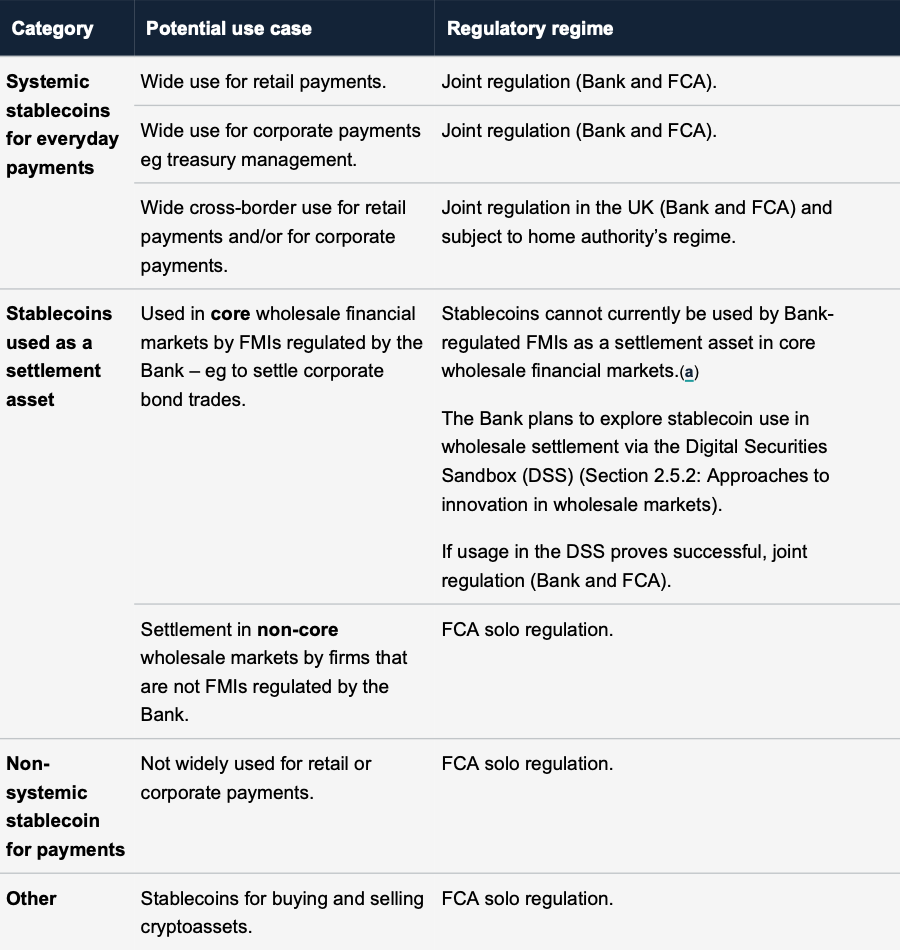
Bank of England Begins Consultation on Stablecoin Regulations Set for 2026
The Bank of England seeks public input on its proposed framework for stablecoins, aiming to finalize regulations by 2026.
The Bank of England (BoE) is advancing towards regulating stablecoins, having published a consultation document outlining a proposed regulatory framework for these digital assets.
On Monday, the Bank of England announced its regulatory regime for sterling-denominated “systemic stablecoins,” which it defines as tokens that are significantly utilized in payment processes and thus could impact financial stability in the UK.
Proposed Framework Details
Under the suggested guidelines, stablecoin issuers will be required to secure at least 40% of their liabilities with non-interest bearing deposits at the BoE, while having the option to allocate up to 60% in short-term UK government securities. Feedback on this proposal will be accepted until February 10, 2026, with finalization aimed for the latter part of the year.
Key Recommendations
The BoE recommendations include limiting stablecoin holdings for individuals to £20,000 (~$26,300) per token, while businesses may seek exemptions for higher amounts based on operational necessities.
The central bank emphasizes: “We are proposing a per-coin limit of £20,000 for individual users and £10 million for businesses, with possible exemptions if higher balances are required.”
 Regulation Timeline
Regulation Timeline
Timeline for regulation on sterling-denominated stablecoins by the Bank of England. Source: BoE
As for backing, the BoE indicated that issuers recognized as systemically crucial might be allowed to allocate up to 95% of their backing assets in UK treasury bills as they grow, reducing this to 60% once the stablecoin achieves a substantial operational scale.
Targeting Systemically Important Stablecoins
The regulatory framework is explicitly aimed at GBP-pegged stablecoins deemed systemically important for retail, corporate, and cross-border payments.
The periodic review conducted by His Majesty’s Treasury identifies which stablecoin systems might classify as significant for regulatory purposes, leading to BoE oversight.
 Stablecoin Categories
Stablecoin Categories
Stablecoin categories and related regulatory frameworks outlined by the Bank of England. Source: BoE
Non-GBP stablecoins like Tether’s USDT or Circle’s USDC will not be included in this regulatory proposal.
The BoE states: “For non-UK issued, non-sterling stablecoins, our first step involves coordinating with the issuer’s country of origin… Additionally, we are reflecting on how to approach coins that could achieve systemic significance in the UK.”
In conclusion, the BoE’s monitoring will also extend to aspects like self-custodial wallets, public ledgers, and the practice of yielding interest on stablecoin holdings.
The bank remarked: “Current public ledgers lack accountability, potentially leading to greater operational risks and challenges with settlement finality.”
Cointelegraph attempted to contact the BoE regarding this regulatory framework but did not receive a reply by the time of publishing.


